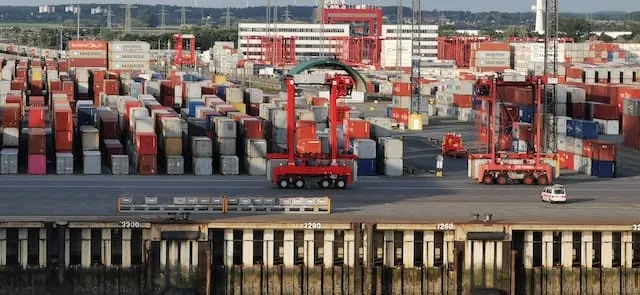Using numerous modes of transportation to convey cargo or freight transportation from one location to another is known as intermodal transportation. It typically involves a combination of trucks, trains, ships, and airplanes. It is the most efficient and cost-effective way to move goods, allowing them to reach their destination faster and with fewer delays.
Intermodal transportation is the movement of large objects using two or more different modes of transportation inside a single steel-based container. Today, many products are distributed using this strategy. Intermodal transport options include truck, rail, ship, and eventually, truck.
Essentially, intermodal freight transport maintains these special standardized containers instead of switching freight between moving vehicles. This procedure has many benefits, including faster delivery and increased product safety.
Intermodalism is a technique used by international organizations and logistics companies to combine various means of transportation.
Later, containerization and the global standardization of container sizes improved the economics of intermodal transport by enabling straightforward handling between modal systems. Intermodal transport currently dominates the worldwide logistics and supply chain.
This concept, which forms the cornerstone of the international shipping and trucking industries, must be understood by everyone involved in the logistics industry. This article will examine intermodal transportation’s features, benefits, and market environment.
What Is the Process of Multimodal Transportation?
A vehicle arrives at the location empty to start the intermodal transportation process. The shipper or transporter in charge loads the goods into the back container of the vehicle. These things probably won’t be handled until they reach their destination.
To go to a rail yard, the car uses the road system. In this area, the logistics company assembles the containers on the rail. The container can be transported by railroad to a port or a train station in a city.
The shipping industry uses the maritime system to carry these containers to the final port. The container is moved to another vehicle after being unpacked. It might even be moved farther inland on a different railway before being loaded into a vehicle.
This vehicle might deliver the container to the last modal station. The word “drayage service” describes the vehicles used to transport these commodities and is only provided by specified companies.
What comes next? The logistics company now removes the goods from the container. The container is prepared to receive new cargo now that it is empty. The logistics sector likewise manages the last mile of delivery to the client.
Why do companies use a range of transportation strategies? It enables a logistics company to utilize the advantages of every mode of transportation. In-country rail transportation is frequently less expensive. International long-distance travel can be accelerated by shipping. Automobiles are also required for local last-mile deliveries and pickups.
Benefits of Intermodal Transportation
Intermodal transportation has many benefits, including reducing environmental impacts, increasing efficiency, and reducing overall costs.
One of the main benefits of intermodal transportation is that it reduces the environmental impacts of transportation. By using multiple modes of transportation, intermodal transportation can reduce the fuel used and the emissions produced. It also reduces the number of vehicles on the road, which reduces traffic congestion and air pollution.
Additionally, intermodal transportation can reduce the amount of land needed for transportation infrastructure, which can help preserve natural habitats and open spaces.
Intermodal transportation by freight outsourcing is also more efficient than one mode of transportation. By utilizing multiple modes of transportation, shipping times can be reduced. This is because different modes of transportation often move at different speeds, which can allow goods to be delivered more quickly.
Also, by taking advantage of multiple modes of transportation, goods can be delivered with fewer delays, as traffic congestion and other problems can be avoided.
Finally, intermodal transportation can also help to reduce overall costs. By utilizing multiple modes of transportation, it is often possible to reduce transportation costs, as different modes of transportation often have different rates. Moreover, by using fewer vehicles, costs associated with fuel and maintenance can be reduced.
Conclusion
Intermodal transportation often leads to lower costs, quicker deliveries, safer goods, and greater sustainability. These important benefits have led to intermodal transport becoming most logistics firms’ chosen mode of transportation or freight management. As worldwide online trade and commerce expand, there will likely be a higher demand for multimodal transportation in the next decades.
FMi Logistics is committed to creating and delivering customized solutions for our clients in Warehousing, Distribution, and Transportation Management. Our team of experienced professionals will integrate our 4 primary core service areas, when required, with our clients’ Purchasing, Distribution, Freight & Construction teams. Get an estimate on freight transportation today!

